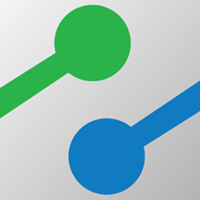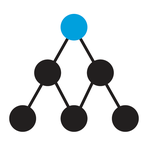The New Frontier of AI: Open-Source Innovations and Cloud Collaborations
November 21, 2024, 3:46 am

Location: United States, California, Santa Barbara
Employees: 1001-5000
Founded date: 2007
Artificial Intelligence (AI) is at a crossroads. Two recent developments highlight this pivotal moment: Numenta's Thousand Brains Project and Red Hat's collaboration with Microsoft Azure. Both initiatives are reshaping the landscape of AI, offering new tools and frameworks that promise to accelerate innovation and democratize access to advanced technologies.
Numenta's Thousand Brains Project is a bold leap into the future. It draws inspiration from the human brain, aiming to replicate its intelligence through a new sensorimotor learning framework. This project is not just a theoretical exercise; it’s a call to arms for researchers and developers worldwide. By making their findings open-source, Numenta invites the global community to contribute, collaborate, and innovate. This is a significant shift from the traditional, closed-door approach often seen in tech development.
Imagine a vast library where anyone can borrow ideas and tools. That’s what Numenta is creating. The Thousand Brains Project is built on the principles of the neocortex, the part of the brain responsible for higher-order functions. This framework allows AI systems to learn continuously, interact with their environment, and operate efficiently. It’s a game-changer for industries looking to harness AI’s potential without the hefty price tag of proprietary software.
The project’s open-source nature means that anyone can access the code, experiment with it, and adapt it for their needs. This fosters a spirit of collaboration. Researchers can run experiments, share results, and refine algorithms. The goal is clear: to build smarter AI that learns like humans do. The implications for sectors like healthcare, robotics, and autonomous systems are enormous. With this initiative, Numenta is not just sharing knowledge; it’s igniting a movement.
On the other side of the AI spectrum, Red Hat is carving out its niche in the cloud. The company has launched Red Hat Enterprise Linux AI (RHEL AI) on Microsoft Azure. This partnership is about more than just software; it’s about creating a robust ecosystem for AI development. RHEL AI provides a foundation for organizations to build, test, and deploy generative AI models seamlessly.
Think of RHEL AI as a sturdy bridge connecting businesses to the cloud. It offers a reliable platform that integrates with existing systems, allowing companies to scale their AI initiatives without starting from scratch. This is crucial in an era where agility is key. Organizations need to pivot quickly to stay competitive, and RHEL AI provides the tools to do just that.
The collaboration between Red Hat and Microsoft is a testament to the power of open-source solutions. By leveraging the strengths of both companies, they are creating a comprehensive environment for AI innovation. RHEL AI is designed to work harmoniously with Azure, ensuring that businesses can deploy AI models efficiently. This synergy is vital as companies increasingly rely on cloud technologies to drive their operations.
RHEL AI also emphasizes the importance of customization. With tools like InstructLab, organizations can align AI models with their specific data and use cases. This tailored approach ensures that businesses can extract maximum value from their AI investments. It’s not just about having the latest technology; it’s about making it work for you.
Both Numenta and Red Hat are championing the idea that AI should be accessible. They are breaking down barriers that have traditionally kept advanced technologies out of reach for many. By promoting open-source frameworks and cloud-based solutions, they are democratizing AI. This shift is crucial as we move toward a future where AI will play an integral role in our daily lives.
The implications of these developments extend beyond technology. They signal a broader trend toward collaboration and community-driven innovation. In a world where challenges are increasingly complex, the ability to share knowledge and resources is invaluable. Numenta’s Thousand Brains Project and Red Hat’s RHEL AI are shining examples of how this can be achieved.
As we look ahead, the future of AI appears bright. The combination of open-source initiatives and cloud collaborations will likely lead to breakthroughs we can only imagine today. Organizations that embrace these changes will be well-positioned to thrive in the AI-driven economy.
In conclusion, the landscape of artificial intelligence is evolving rapidly. Numenta’s Thousand Brains Project and Red Hat’s RHEL AI on Microsoft Azure are at the forefront of this transformation. They represent a shift toward openness, collaboration, and accessibility. As these initiatives gain traction, they will undoubtedly shape the future of AI, making it more inclusive and innovative. The journey has just begun, and the possibilities are endless.
Numenta's Thousand Brains Project is a bold leap into the future. It draws inspiration from the human brain, aiming to replicate its intelligence through a new sensorimotor learning framework. This project is not just a theoretical exercise; it’s a call to arms for researchers and developers worldwide. By making their findings open-source, Numenta invites the global community to contribute, collaborate, and innovate. This is a significant shift from the traditional, closed-door approach often seen in tech development.
Imagine a vast library where anyone can borrow ideas and tools. That’s what Numenta is creating. The Thousand Brains Project is built on the principles of the neocortex, the part of the brain responsible for higher-order functions. This framework allows AI systems to learn continuously, interact with their environment, and operate efficiently. It’s a game-changer for industries looking to harness AI’s potential without the hefty price tag of proprietary software.
The project’s open-source nature means that anyone can access the code, experiment with it, and adapt it for their needs. This fosters a spirit of collaboration. Researchers can run experiments, share results, and refine algorithms. The goal is clear: to build smarter AI that learns like humans do. The implications for sectors like healthcare, robotics, and autonomous systems are enormous. With this initiative, Numenta is not just sharing knowledge; it’s igniting a movement.
On the other side of the AI spectrum, Red Hat is carving out its niche in the cloud. The company has launched Red Hat Enterprise Linux AI (RHEL AI) on Microsoft Azure. This partnership is about more than just software; it’s about creating a robust ecosystem for AI development. RHEL AI provides a foundation for organizations to build, test, and deploy generative AI models seamlessly.
Think of RHEL AI as a sturdy bridge connecting businesses to the cloud. It offers a reliable platform that integrates with existing systems, allowing companies to scale their AI initiatives without starting from scratch. This is crucial in an era where agility is key. Organizations need to pivot quickly to stay competitive, and RHEL AI provides the tools to do just that.
The collaboration between Red Hat and Microsoft is a testament to the power of open-source solutions. By leveraging the strengths of both companies, they are creating a comprehensive environment for AI innovation. RHEL AI is designed to work harmoniously with Azure, ensuring that businesses can deploy AI models efficiently. This synergy is vital as companies increasingly rely on cloud technologies to drive their operations.
RHEL AI also emphasizes the importance of customization. With tools like InstructLab, organizations can align AI models with their specific data and use cases. This tailored approach ensures that businesses can extract maximum value from their AI investments. It’s not just about having the latest technology; it’s about making it work for you.
Both Numenta and Red Hat are championing the idea that AI should be accessible. They are breaking down barriers that have traditionally kept advanced technologies out of reach for many. By promoting open-source frameworks and cloud-based solutions, they are democratizing AI. This shift is crucial as we move toward a future where AI will play an integral role in our daily lives.
The implications of these developments extend beyond technology. They signal a broader trend toward collaboration and community-driven innovation. In a world where challenges are increasingly complex, the ability to share knowledge and resources is invaluable. Numenta’s Thousand Brains Project and Red Hat’s RHEL AI are shining examples of how this can be achieved.
As we look ahead, the future of AI appears bright. The combination of open-source initiatives and cloud collaborations will likely lead to breakthroughs we can only imagine today. Organizations that embrace these changes will be well-positioned to thrive in the AI-driven economy.
In conclusion, the landscape of artificial intelligence is evolving rapidly. Numenta’s Thousand Brains Project and Red Hat’s RHEL AI on Microsoft Azure are at the forefront of this transformation. They represent a shift toward openness, collaboration, and accessibility. As these initiatives gain traction, they will undoubtedly shape the future of AI, making it more inclusive and innovative. The journey has just begun, and the possibilities are endless.

